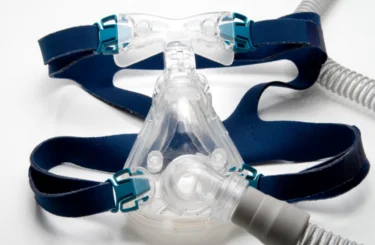
Three Killed in Michigan Wrong-Way Motor Vehicle Accident
In April 2023, a man driving a 2015 BMW veered out of his lane and collided head-on with a 2018 Kia. The car accident occurred around 10 a.m. on Roscommon Road, near the intersection with East Robinson Lake Road. The BMW veered out of its northbound lane, drifting across oncoming traffic. It traveled against traffic on the southbound shoulder, then crossed back into oncoming traffic and collided with the Kia.
Both occupants of the Kia — a married couple who were both 73 years old — died at the scene; the BMW driver was taken to Grayling Mercy Hospital but later succumbed to his injuries.
This tragic occurrence resulted in three fatalities. Head-on collisions like this one are some of the deadliest types of car accidents because they involve a direct impact, often at high speed. However, they are also among the most easily preventable accidents.
What Are the Leading Causes of Head-On Accidents?
The leading causes of head-on accidents include:
Distracted driving: When drivers are not paying attention to the road or where they are going, they may drift out of their lane and into oncoming traffic. Distracted drivers may also fail to notice another vehicle coming towards them.
Impaired Driving: Driving under the influence of drugs or alcohol significantly impairs a driver’s ability to control their vehicle and make safe decisions. Both drugs and alcohol also increase a driver’s reaction time, reducing their ability to avoid an upcoming hazard.
Drowsy Driving: Drivers who are tired or sleepy may also have difficulty staying alert and keeping their vehicle in the correct lane, potentially leading to a head-on accident.
Speeding: Driving at high speeds affects a driver’s reaction time, which means it takes them longer to make decisions. Speeding also increases the likelihood a driver will lose control of the vehicle.
Poor Visibility: In adverse weather conditions or poorly lit areas, it may be difficult to see oncoming traffic, increasing the risk of a head-on collision.
Reckless Driving: Reckless behaviors like passing on a two-lane road, making sudden turns without signaling, cutting in and out of traffic, and tailgating can also cause a driver to lose control of their vehicle, increasing the chance of a head-on collision.
Of course, sometimes a head-on accident results from a driver simply making a mistake. For example, if a motorist is confused and enters a poorly marked off-ramp instead of an on-ramp, they may find it almost impossible to avoid a head-on collision.
Have You Been Injured in a Michigan Car Accident?
If you or a loved one has been injured in a Michigan head-on collision, you may be able to bring a legal claim against the other driver. You may also be able to bring claims against other parties who contributed to causing the crash, such as against a business that failed to maintain its property or a car manufacturer that designed a dangerous and defective vehicle.
If you succeed, you may be able to recover compensation for your accident-related expenses, including medical expenses, lost wages, property damage, and pain and suffering. At Sommers Schwartz, P.C., we have extensive experience handling car accident cases on behalf of accident victims and their families. We’ve recovered over $1 billion on behalf of our clients and continuously strive to get accident victims what they deserve.
Don’t wait – you have a limited time to pursue your claim. We look forward to exploring how we can help you. To learn more and to schedule a free consultation, contact Sommers Schwartz at 866-520-1649 or fill out our online contact form.
Lenore Zakhem
As an associate with the firm’s Medical Malpractice and Personal Injury Litigation Groups, Lenore Zakhem represents individuals and families injured due to general negligence, medical errors, and other wrongdoing.





